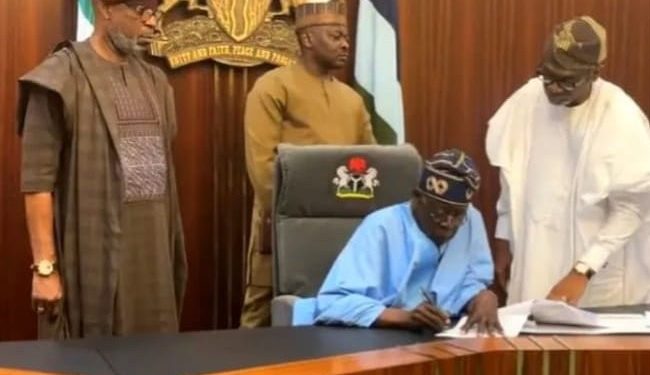The Nigerian government has proposed a new minimum wage for civil servants in the country
It also fixed a meeting to consider proposals by the the Nigeria Labour Congress(NLC) and Trade Union Congress(TUC) on the new minimum wage.
The meeting which is to take place at the Office of the Secretary to the Government of the Federation (SGF) will be attended by the government representatives on Tripartite committee on new minimum wage only.
A letter scheduling the meeting, dated April 24 and signed by a Permanent Secretary in the SGF Office, said that, “the purpose of the meeting is to deliberate and agree on government position on the new minimum wage which will be presented at the next meeting of the triparted Committee”.
The two major labour centres, the Nigeria Labour Congress (NLC) and Trade Union Congress (TUC), had earlier made separate proposals for the new minimum wage based on what they called existing economic realities.”
The asked government to accede to their demand for a living wage that sustains an average worker based on the ever-rising cost of living.
TUC had proposed a figure of N447,000 per month, while the NLC later adjusted its stance to request N794,000 per worker.
However, in their latest submission to the government, both unions jointly proposed N615,000 as the new minimum wage, reflecting a compromise in the face of economic challenges.
At the meeting summoned by the SGF today, the government side is expected to consider all positions including that of the governors under the auspices of the Nigerian Governors’ Forum before arriving at a middle ground.
A source at the SGF office who spoke to ThisDay said from all indications, the federal government is considering a new minimum wage ranging from N150,000 to N200,000 as the template for further negotiation.
Meanwhile, the National Association of Academic Technologists (NAAT) has recommended a new national minimum wage of N350, 000 for workers in the country.
NAAT ‘s proposal came just as the Minister of Education, Prof. Mamam Tahir, assured university workers of the federal government’s determination to fix challenges of the education sector, including prioritisation of staff and students’ welfare.








